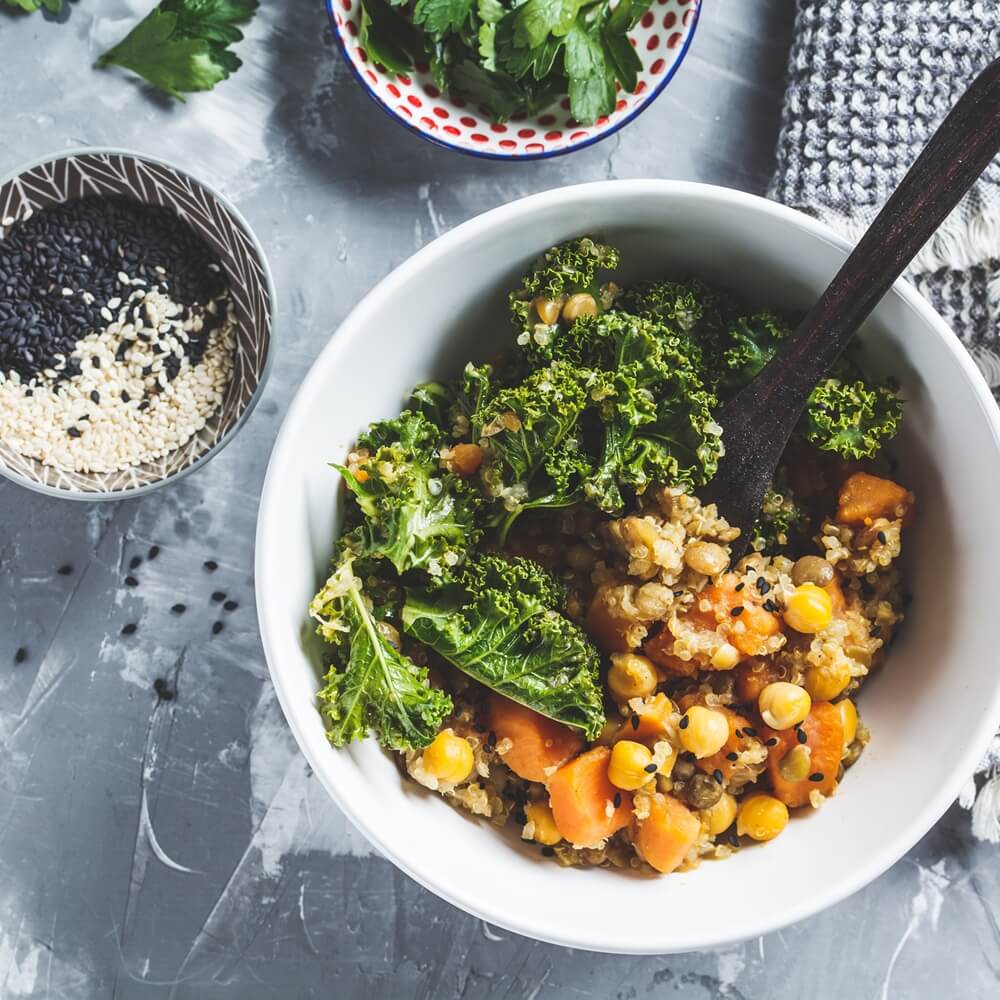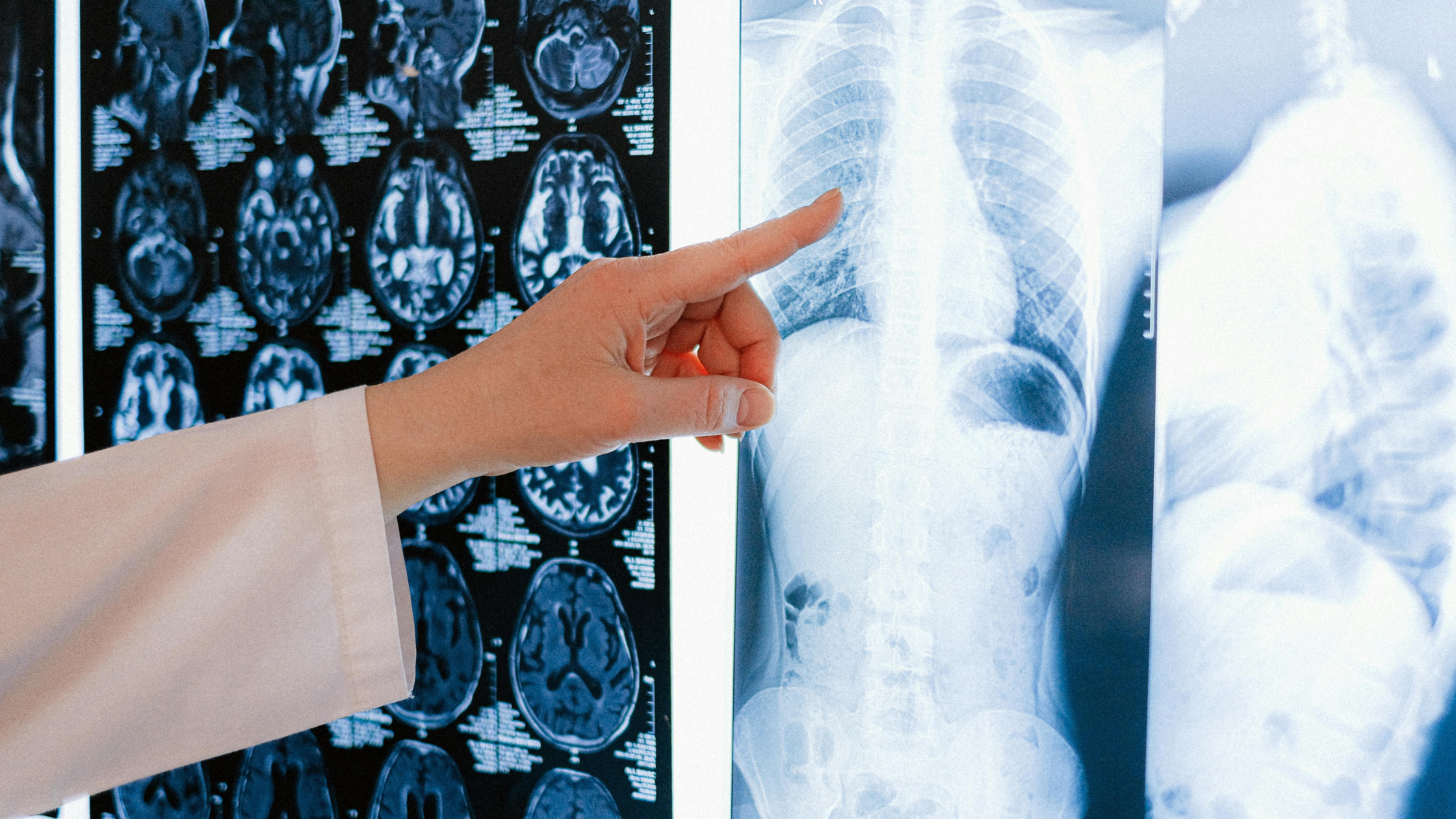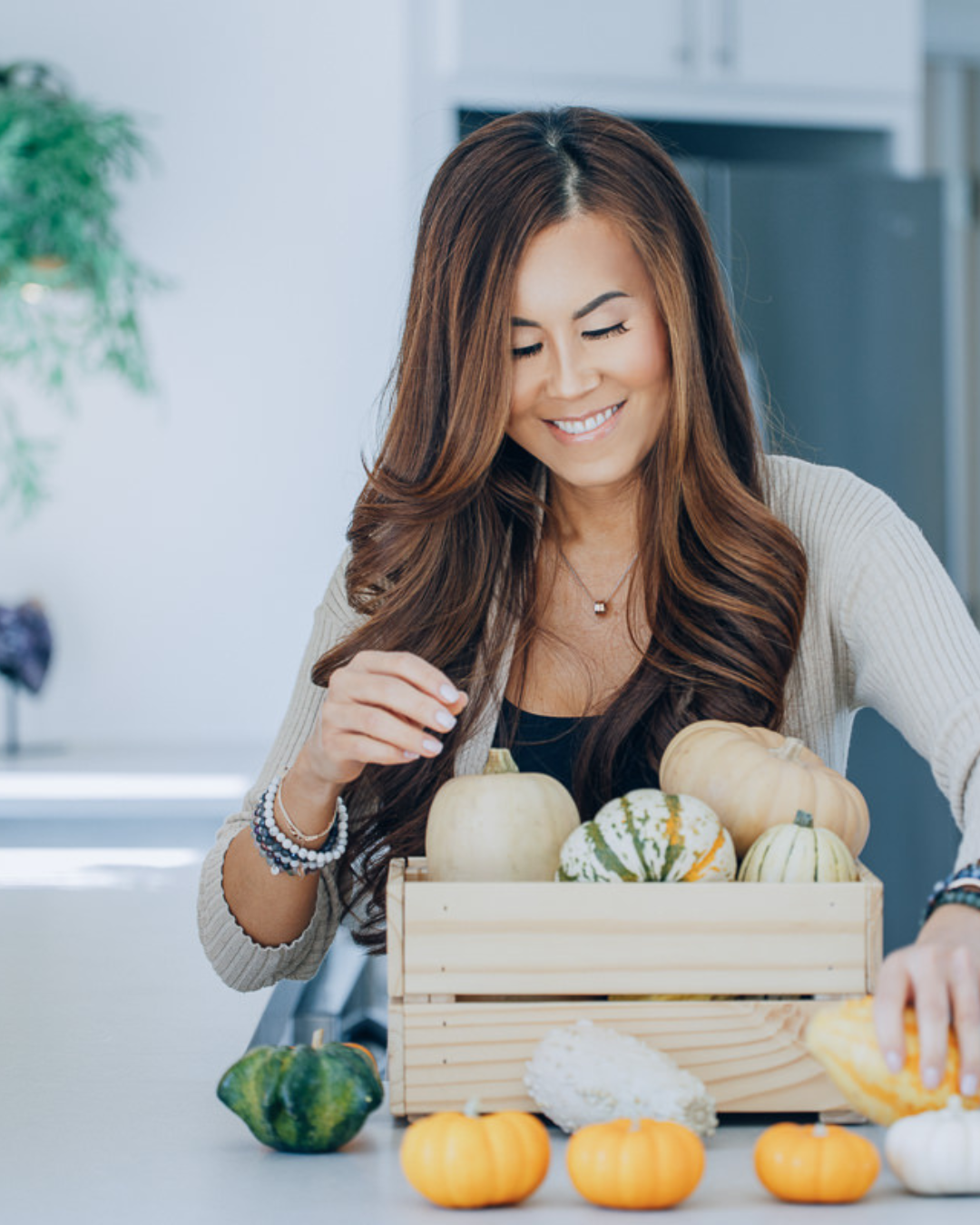The Top 10 Iron-rich Foods Your Vegetarian or Plant-Based Diet Needs Today
Growing up, I remember we were always told to eat lots of red meat because it is a good source of iron.
Well, times have changed! While it may be a good source of iron, it turns out that red meat also can create a lot of health issues, and meat consumption is responsible for releasing greenhouse gases such as methane, CO2, and nitrous oxide. These gases contribute to climate change, such as global warming, and that’s pretty scary.
For these (and many other reasons) a lot of people choose to eat cleaner, vegetarian or plant-based diets.
You might be wondering:
If you eat a plant-based diet, does that necessarily mean that you aren’t getting enough iron? Not necessarily. But it is important to make a conscientious effort to make up for any nutrients you’re not getting from meat.
There are so many plant-based iron-rich foods. The key is having that awareness, educating yourself, and following through to ensure you are getting the right amount of iron in your system.
Why Iron is needed by the body
Regardless of whether or not you’re a vegetarian, I’m sure you’ve experienced periods of low energy. It could very well be because you’re experiencing an iron deficiency.
According to Healthline, a diet lacking in iron can result in low energy levels, shortness of breath, headaches, irritability, dizziness, anemia, and cold hands and feet.
The benefits of eating foods with lots of iron are amazing. It’s actually a vital nutrient to several functions in your body. Iron is an essential ingredient in creating hormones, brain cell development, and making hemoglobin which carries oxygen throughout the body. An inability to create hemoglobin leads to anemia.
According to UC San Francisco, about 6 percent of body iron is a component of certain proteins, essential for respiration and energy metabolism, and as a component of enzymes involved in the synthesis of collagen and some neurotransmitters. Iron also is needed for proper immune function.
Why a healthy, iron-rich diet is so important
Your body doesn’t make iron. Therefore, this essential nutrient has to come from your food. Although red meat and seafood are good sources of iron, many plant-based foods also contain plenty of this mineral.
Also, believe it or not, only about 10 to 30 percent of the iron you consume is absorbed and used by the body.
Healthline states that the recommended daily intake (RDI) is based on an average intake of 18 mg per day. However, individual requirements vary based on a person’s gender and life stage.
“For instance, men and post-menopausal women generally require around 8 mg of iron per day. This amount increases to 18 mg per day for menstruating women and to 27 mg per day for pregnant women.
And, since non-heme iron tends to be less easily absorbed by our bodies than heme iron, the RDI for vegetarians and vegans is 1.8 times higher than for meat-eaters.”
Iron deficiency in vegans is common, but easily fixed! Simply being knowledgeable and intentional about eating the right foods will make it possible to get your recommended daily iron intake.
Make sure that you get the iron-rich foods listed below when you grocery shop and prepare your meals. I’ve also included a few tips that are important for optimizing iron levels.
Iron from animal sources vs. plant-based foods high in iron
Have you heard of heme and non-heme iron?
These two types of iron are absorbed differently. Non-heme iron is from plants while heme iron, from animals, is actually more easily absorbed.
The best way to make sure that you’re absorbing the iron you get from plant food is to take a vitamin C supplement or to get a wide variety of fruits and vegetables in your diet.
Also, be aware that eating lots of grains and legumes (high in phytic acid) can undermine iron absorption. Polyphenols also inhibit iron absorption (found in wine, coffee, tea, chocolate, and berries). Soaking your legumes, sprouting, and eating foods high in Vitamin C will counteract those inhibitors.
Top 10 iron-rich foods
- Beans & Legumes – offer anywhere from 24-49% of daily RDI – Navy beans, white beans, lentils, tofu, soybeans, chickpeas, black-eyed peas
- Nuts & Seeds – offer anywhere from 9-27% of daily RDI – Pumpkin seeds, hemp seeds, flax seeds, sesame seeds, macadamia, cashews, pinenuts
- Whole Grains – minimally processed grains offer anywhere from 16-29% daily RDI – Quinoa, oats, millet, buckwheat, amaranth
- Sun-Dried Tomatoes – Dried tomatoes have a higher content of iron than regular fresh tomatoes.
- Leafy Greens – anywhere from 14-36% daily RDI – best consumed cooked. – Kale, rainbow chard, swiss chard, collard greens, spinach
- Potatoes –Offer anywhere from 12-18% depending on the type of potato. Potato skins are high in iron. Sweet potatoes contain less than regular potatoes.
- Mushrooms – offer up to 15% of daily RDI – Oyster mushrooms and white mushrooms have higher iron levels
- Hearts of Palm – Have about 9% of the RDI
- Mulberries – 14% of daily RDI for Iron as well as Vitamin C to help with absorption
- Coconut milk & Coconut Water – Contains about 21% of the daily RDI
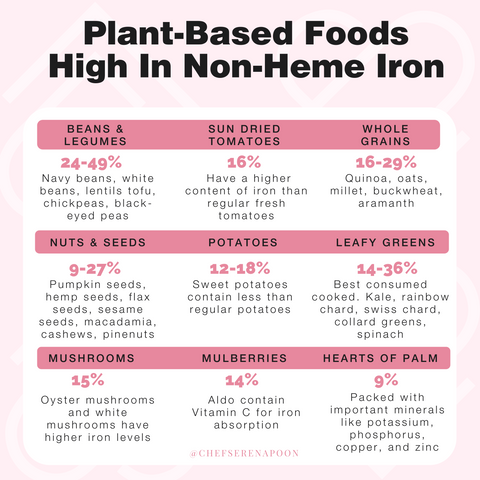
One simple tip to make sure you get the most iron absorption out of the food you eat is cook in a cast iron pan. In an article on pregnancy and anemia, UCSF Health states that cooking in iron pans can add up to 80 percent more iron to your foods.
Check out ten superfoods to fuel your superpowers! I talk about awesome microgreens that not only supply your body with iron, they also have been studied as functional foods in preventing obesity, diabetes, heart disease, and cancer.
Iron supplements
It is really only recommended that people who have an iron deficiency or need iron to support pregnancy take iron supplements. Consuming too much iron can be toxic and cause serious health concerns, especially in children. If you think you may have an iron deficiency, you can ask your doctor to test your blood for iron. They may suggest including more iron-rich foods in your diet and plant-based folates or iron supplementation if you are deficient.
The benefits of an iron supplement for someone who is deficient will include:
- Increased energy.
- Better brain function
- Improved immune function
- May support better muscle function
- Improved overall feelings of well-being
- Support fetal brain development
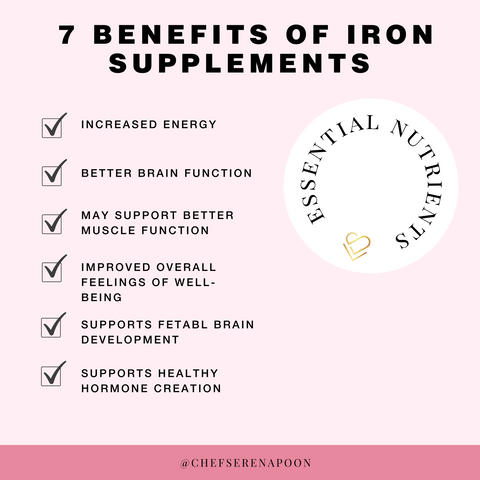
I don’t recommend taking iron supplements unless you and your practitioner determine that you have a deficiency or other need. Many people can absorb the iron that they need from their food and iron can be very toxic when you consume more than you need.
It turns out that when we were given that talk about eating lots of red meat as kids, that was not necessarily healthy advice. According to the National Library of Medicine, high iron stores are also a risk factor for certain non-communicable diseases, such as type 2 diabetes.
Therefore, both vegetarians and non-vegetarians need to regularly control their iron status and improve their diet by consuming more plants and less meat.
I firmly believe that knowledge is power. Being proactive in taking our health seriously is the key to a long (and strong) life.
XO – Serena
by
